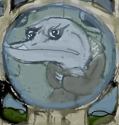|
Alchenar posted:Really brief tankchat:
|
|
|
|

|
| # ? Jun 12, 2024 09:49 |
|
100 Years Ago More strategic analysis of the Western Front! More crappy MSPaint drawings! This one has labels of the various regions of France as they're usually used in WWI parlance. I know it took me forever to lock down in my head exactly where we were when somebody referred casually to "Champagne" or "Artois", and I'm surely not alone in that.  The French, of course, are planning to be very offensive. Meanwhile: in the Middle East the Ottomans leave Basra to the British, and in London the Daily Telegraph reports (for about the third time in as many weeks) that the Germans are running out of men for the army. (Spoilers: They're not.) Koesj posted:Or Starfighters in earlier years. Hands up everyone who's now humming a song about poopie suits? Trin Tragula fucked around with this message at 18:25 on Nov 20, 2014 |
|
|
|
Ensign Expendable posted:My best guess is that the Ausf. Ds are relegated to pre-production batch status, and the first "real" Panthers are now Ausf. A. Those designations were incredibly arbitrary anyway, aside from a handful of vehicles where they actually made sense. Pretty much. The first prototype batch was called Ausf. A but the production batch was then designated as Ausf. D at which point the original Ausf. A was redesignated as Ausf. D1. Then they improved the production version and called it the Ausf. A, logically followed by G which was to be followed by Ausf. F.
|
|
|
|
Trin Tragula posted:I know it took me forever to lock down in my head exactly where we were when somebody referred casually to "Champagne" or "Artois", and I'm surely not alone in that. You need to go play some Europa Universalis and/or Crusader Kings.
|
|
|
|
PittTheElder posted:You need to go play some Europa Universalis and/or Crusader Kings. I've played so many Paradox mapgames I have difficulty visualizing the Balkans as they are today. My headcanon has them forever rendered as Czechoslovakia and Yugoslavia, or Austria-Hungary and Ottoman-vassal Serbia ...
|
|
|
|
gradenko_2000 posted:I've played so many Paradox mapgames I have difficulty visualizing the Balkans as they are today. My headcanon has them forever rendered as Czechoslovakia and Yugoslavia, or Austria-Hungary and Ottoman-vassal Serbia ... I was born in '84 and I have trouble visualizing them as they are today since I spent some of my formative years seeing them treated in the news as rubble-filled, bullet-pocked, ethnic cleansing hellholes filled with snipers. Sure they have some issues now but it takes that minuscule effort to not think of something resembling Gaza when I hear "Sarajevo" or "Kosovo." I can't think of many other things that are twisted for me like that. It isn't like I think of NYC as a place with a smoldering crater or a huge excavated work site in the middle, because I was a senior in high school in 2001 and my perception had pretty much been set by then. I guess that's what makes some of those cold warrior types so kooky these days - they grew up in a world where (according to people they trusted for news) Russia's/USSR's primary products were communism, potatoes, vodka, and nuclear weapons. It was probably the same with Germany/Italy/Japan for their parents, but less so with the (in their time) USSR since they grew up being told the soviets were our friends.
|
|
|
|
FAUXTON posted:I was born in '84 and I have trouble visualizing them as they are today since I spent some of my formative years seeing them treated in the news as rubble-filled, bullet-pocked, ethnic cleansing hellholes filled with snipers. Sure they have some issues now but it takes that minuscule effort to not think of something resembling Gaza when I hear "Sarajevo" or "Kosovo." That's interesting - the other day my brother asked me out of nowhere if Zagreb was a nice place to visit. I responded emphatically that it was a wartorn hellscape, only to be very much surprised when I looked it up on Google Image Search. I was born in '87, I suppose growing up in the 90s with all those images of the conflict in the Balkan states left an impression.
|
|
|
|
Libluini posted:To be fair, our own contingency plans included nice things like getting nukes from the USA to mine our bridges and use tactical nuclear strikes with our own Tornados as soon as the Soviets start doing the same. This is why in Red Army the Soviet plan was to encircle enough German forces to make the German government veto plans to nuke the Soviet forces if it also meant nuking significant numbers of encircled German forces.
|
|
|
|
gradenko_2000 posted:That's interesting - the other day my brother asked me out of nowhere if Zagreb was a nice place to visit. I responded emphatically that it was a wartorn hellscape, only to be very much surprised when I looked it up on Google Image Search. Yeah, post-Soviet Eastern Europe probably has a lot of places where this generation is like "gently caress, stay away from there, it's a lawless expanse populated by corrupt officials and the tracksuit mafia who bankroll them by kidnapping tourists" because of how legitimately bad it was while we were growing up and getting a sense of the world. Some places might have occasional trouble (Ukraine, for example, but like many of the region's troubles it's mainly related to having Notably lovely Neighbor Russia trying to gently caress with your internal politics) but you google stuff like Croatia and it's goddamn drop-dead gorgeous and literally the kind of stuff you envision when you think of the Italian countryside - rolling elysian fields spotted with roman ruins, vineyards, and those tall skinny evergreen trees whose name I can't recall. E: Cupressus Sempervirens, or the Mediterranean Cypress. FAUXTON fucked around with this message at 22:04 on Nov 20, 2014 |
|
|
|
Grand Prize Winner posted:Hegel, can I ask you something maybe a little out of your wheelhouse? How/when did the warfare of the late middle ages evolve into what you study, and how/when did it turn into those massed-musket levee en masse things you see from 1780 or so to 1860ish? quote:When did the cartridge box supersede the apostles (or whatever you call those bandoliers that held pre-measured charges)? It varies. Some infantry was using them by the 1630s (this was very rare), but I know that the Swedish arsenal continued to issue collars of bandoliers until the 1670s. Historians used to think that Gustavus Adolphus replaced the collar of bandoliers with cartridge boxes, but this is not the case. Chamale posted:How detailed and current could the orders be in a Thirty Years War battle? What kind of orders could be delivered to troops out of shouting range, or out of sight? What kind of things made the difference between good and bad generals on the battlefield? Good generals will pick good ground, reinforce the advantages of ground by fortifying, deploy their forces intelligently, keep reserves just in case (20th century observers said that the reason Tilly lost Breitenfeld was because the tercio was an inferior formation; period observers said it was because he didn't have any reserves), know when and where to give battle, notice if something's happening so they can capitalize on it, and (if they're not old or sick) lead bravely. They're also lucky--this is a culture which believes seriously that "fortune" is a large part of whether you succeed or fail in battle. JcDent posted:Reading Pike and Shotte rulebook and playing videogames has left me entirely confused on how large were units on the battlefield. Like, if you have your mass of pikemen and the muskets flanking them, how big would the units be? Would they have internal division into companies and such? By the 1630s everyone is fielding small battalions/regiments/tercios/brigades of about a thousand people, which is also about the size of a regiment, more or less. At the standard one to two, that's about 300 pike and about 600 shot. You can do different things with them, of course, such as deploying the musketeers in different shapes around a central square of pikemen, or having the pike stand in front of a line of musketeers. Squad-->company-->regiment are the administrative divisions. It's an amusing fact of this period's tactics that tactically (except if you want to do interesting things with a forlorn hope or commanded musketeers, which often function like skirmishers), there is very little of relevance between the squad (six people) and the battalion/tercio/whatever you want to call it (a thousand people). The squad is relevant because if you have a convoy you tip a few squads of musketeers to guard it. I think that when a regiment is forming a battalion on the field, people stand next to other people of the same company, but I don't think that has any tactical effect. It's just a big old square or rectangle, as far as I know nobody has yet invented firing by platoons, for instance. Edit: And that is in the field, not during a siege, since I know a lot less about small-scale siege tactics. HEY GUNS fucked around with this message at 22:21 on Nov 20, 2014 |
|
|
|
gradenko_2000 posted:That's interesting - the other day my brother asked me out of nowhere if Zagreb was a nice place to visit. I responded emphatically that it was a wartorn hellscape, only to be very much surprised when I looked it up on Google Image Search. Zagreb escaped much of the destruction during the nineties, only notable incident was cluster MRL strike in 1995. There was also bombing of croatian presidential residence in 1991, but it resulted in light casualties. As a resident of Zagreb for last 33 years, it's loving amazing place to visit but crappy place to live.
|
|
|
|
Alchenar posted:Really brief tankchat: The Ausf D should really be Ausf d, but because ~reasons~ is capitalized. Prototype/early model vehicles got lower-case letters, while full production vehicles got capital letters. Someone somewhere confused something about the Ausf D, hence why it's out of order-ish. At least that's how I remember it. I dunno. Nazis are weird.
|
|
|
|
A friend of mine, and fellow goon, said this to me while visiting Croatia, Bosnia, and thereabouts a few months back:quote:Yup Also, because I missed it earlier: JcDent posted:Reading Pike and Shotte rulebook and playing videogames has left me entirely confused on how large were units on the battlefield. Like, if you have your mass of pikemen and the muskets flanking them, how big would the units be? Would they have internal division into companies and such?
|
|
|
|
Arquinsiel posted:The good outweighs the bad
|
|
|
|
So, was Gustavus Adolphus actually a good field commander? He has this reputation up here in Scandinavia, but I feel as though that might just be Swedish propaganda seeping through and nostalgia for when we were relevant.
|
|
|
|
V. Illych L. posted:So, was Gustavus Adolphus actually a good field commander? He has this reputation up here in Scandinavia, but I feel as though that might just be Swedish propaganda seeping through and nostalgia for when we were relevant.
|
|
|
|
Raenir Salazar posted:This is why in Red Army the Soviet plan was to encircle enough German forces to make the German government veto plans to nuke the Soviet forces if it also meant nuking significant numbers of encircled German forces. This reminds me, I once looked at a map of our plans in case of Soviet attack, so I can savely say: Good luck with that, Commies. Hope you can swim through the North Sea. But to be fair, if the southern states like Austria would have fallen before us, a Soviet attack from the south could have theoretically driven the NATO-forces in Germany back to the coast and "encircled" them there.  Another problem with that plan is the fact German forces were pretty much intertwined with American and other NATO-forces. Especially since a mobilization effort in the east would have been answered with a NATO-mobilization, German forces would probably also include French forces, forces from the Benelux-states and so on. British and American forces were already there, of course. Edit: I grew up in a city with a British garrison, as an example for forces already here. Libluini fucked around with this message at 23:52 on Nov 20, 2014 |
|
|
|
HEY GAL posted:It varies. Some infantry was using them by the 1630s (this was very rare), but I know that the Swedish arsenal continued to issue collars of bandoliers until the 1670s. Historians used to think that Gustavus Adolphus replaced the collar of bandoliers with cartridge boxes, but this is not the case. Once again Ireland is weirdly ahead of the curve here, the entire Ulster army of 1641 is equipped with "cartouche boxes".
|
|
|
|
Rabhadh posted:Once again Ireland is weirdly ahead of the curve here, the entire Ulster army of 1641 is equipped with "cartouche boxes".
|
|
|
|
JcDent posted:1. When rebuking various articles and videos about how Germans could have won WWII, lists of German mistakes pile up pretty fast. Looking at those, it seems hard to believe that they managed to wage war for 6 years. So what did Germans do right/Allies did wrong to allow it? Middle- and low-level management. Due to the way the old Reichswehr had been organised, the Wehrmacht had a massive stock of well-trained NCOs and officers with extensive experience gained from the Spanish Civil War and early WWII. For most of the war, their leadership at regimental level and below was outstanding when it came to personal initiative on the spot, which together with the mission-type tactics employed by the Wehrmacht meant that it was from an organisatinonal standpoint both fast moving and resilient to a degree the Allies and Soviets only really achieved later in the war with any consistency. You often had cases of allied attacks achieving a potential breakthrough just for some little german battalion or regimental CO to scrape together an ad hoc battlegroup made up of whatever fragmented units in the vicinity and hit them with a spoiler or outright counterattack before they could capitalise on their success. Patrick Spens posted:I remember reading quotes from Canadian soldiers that served in Korea that involved large groups of soldiers with grenades but not guns rushing Canadian positions. Does anyone know if there are sources that support that? Some chinese units were in fact short of firearms IIRC and would rectify that by capturing stuff from UN troops. They would still fucntionally treat hand grenades as their primary weapon during an assault. The PVA unified the experiences of interwar-period training in stormtrooper tactics by german advisors, the fighting of the nationalist army agiasnt the Japanese and the guerilla war waged by the PLA. Its soldiers considered the hand grenade a weapon just as important as the rifle - it was basically their personal artillery and they would bring as many of them as they could and liberally use them whenever possible. This tradition has actually carried over to the modern PLA infantry, too. They still use stick grenades (now with lightweight polymer handles) to get more range and they seem to have taken a real liking to grenade launchers and man-portable AGLs.
|
|
|
|
HEY GAL posted:He should visit Dresden lol Do you ever see things relating to the Neonazi myth that the Dresden firebombing killed more people than the bombing of Tokyo or Hiroshima? For some reason they love using a grossly exaggerated estimate of the deaths at Dresden to criticize Allied bombing campaigns.
|
|
|
|
HEY GAL posted:(Not really, an infantry battalion is still the least stealthy thing on earth) I beg your pardon, I believe that distinction belongs to the artillery. Between the noise of the gun carriages and the weapons-grade vocabulary of the gunners, artillery doesn't do quiet very well. And that's before they start shooting.
|
|
|
|
Chamale posted:Do you ever see things relating to the Neonazi myth that the Dresden firebombing killed more people than the bombing of Tokyo or Hiroshima? For some reason they love using a grossly exaggerated estimate of the deaths at Dresden to criticize Allied bombing campaigns. Bacarruda posted:I beg your pardon, I believe that distinction belongs to the artillery. Edit: Nobody in the 17th century really does "stealth" very well.
|
|
|
|
I'm listening to Dan Carlin's WW1 podcast that's running right now, what are your thoughts on it? The way he portrays it, it wasn't so much the Balkans that were on a hair-trigger, but Germany's Schliffen plan that was on a hair trigger. He also emphasises how Germany really hosed up the geopolitics of it by favouring tactical necessities at the expense of diplomatic standing.
|
|
|
|
Chamale posted:Do you ever see things relating to the Neonazi myth that the Dresden firebombing killed more people than the bombing of Tokyo or Hiroshima? For some reason they love using a grossly exaggerated estimate of the deaths at Dresden to criticize Allied bombing campaigns. I had actually always thought they were relatively equal, and had never really bothered to check. But holy poo poo that Tokyo figure is just insane.
|
|
|
|
Phobophilia posted:I'm listening to Dan Carlin's WW1 podcast that's running right now, what are your thoughts on it? The way he portrays it, it wasn't so much the Balkans that were on a hair-trigger, but Germany's Schliffen plan that was on a hair trigger. Needing to mobilize first was a flaw in all European war plans (though really that was just the operational paradigm of the time). Needing to hit France the moment war with Russia was vaguely plausible was a major problem with schlieffen. It meant a commitment to fighting a general European war.
|
|
|
|
If you want to see the transition of late medieval armies into the 1600s era, you have to look at the Italian wars and the rise and fall of the swiss pikemen. The swiss pikes' success spurred the development of more integrated firepower with pike units to defeat both the Swiss and French gendarmes. Pistol-armed cavalry showed up as a way to deal with all the pikes.
|
|
|
|
Libluini posted:This reminds me, I once looked at a map of our plans in case of Soviet attack, so I can savely say: Good luck with that, Commies. Hope you can swim through the North Sea. I think Raenir Salazar is aware of all that, Red Army is a fun read which goes into the nitty-gritty of NATO's operational deployment in Northern Germany pretty well. US Forces in Niedersachsen were pretty light, only 3rd Bde 2nd Armored Div was forward deployed while the other 7/8 maneuver brigades of III Corps were back in the US. They'd be flown in during NATO simple/reinforced alert (probably the latter) and would then draw vehicles and equipment from prepositioned warehouses (after coping with the jet-lag). Testing this scheme was a big part of NATO's annual REFORGER exercises, the ones where admin officers drove in the rear with thousands of Marks in cash to pay off farmers who just had their lands reploughed by tanks doing their thangs. The actual big US 7th Army 'keep the Russians out, the Americans in, and the Germans down' formations - V and VII Corps - were all down south in Hessen and Bayern. Almost all mechanised British forces were already in Germany of course but funnily (or sadly) enough the limeys didn't have that much of an army left during the latter stages of the Cold War. B+NL actually brought more readily available troops to bear for the defence of West-Germany than the UK, while the fully mobilised strength of the BRD Heer and Territorialarmee was bigger than the regular US Army IIRC. The French were supposed to fight in the south, here's a 1985 map of nation's areas of responsibility in the North of Germany (applies from the mid-1960s onwards actually):  Each of those corps was made up of nicely mixed forces with about 4-6 brigades up front, real close to the border, and about the same amount as a tactical reserve - still east of the Weser river mind you. Behind that you notionally had the US III Corps with the 7. Panzerdivision out of Westfalen attached. Pretty big force right? Well, during the late 70s/early 80s the Brits were adamant that they'd get plastered within a week. They banked on being able to force a so called 'echelon change' by the Soviets before the latter were able to hit the Weser (the blue line that goes North-South through 1 (BR) Corps sector). This *slightly better* case scenario would still have entailed the probable destruction of 2 British and up to 4 Soviet tank divisions in an area no wider than 75 or so kilometers within a couple of days, only in order to buy time and maybe get to *some* kind of negotiated settlement before the nukes started flying (if neither side hadn't actually started the thing by letting loose already). The Cold War was a horrendous drain on the world's resources but a shooting conflict would have been infinitely more terrible. I'm glad that poo poo was over but now it seems retro enough to be making a comeback 
|
|
|
|
gradenko_2000 posted:That's interesting - the other day my brother asked me out of nowhere if Zagreb was a nice place to visit. I responded emphatically that it was a wartorn hellscape, only to be very much surprised when I looked it up on Google Image Search. Zagreb was relatively undamaged, actually, as I recall. Croatia in general got the fighting on its soil out of the way nice and early (in part by conceding some of that soil, natch).
|
|
|
|
I would just like to say that anyone who has not read Battle Cry of Freedom should go buy it now. I'm from the South and it completely changed how I see the war. Does anyone have recommendations for more Civil War books? It is really the most fascinating event in US history.
|
|
|
|
HEY GAL posted:John Lynn said that you needed to rebuild the roads behind the big 17th century French siege guns as they traveled. The precursor to Nazi tanks 
|
|
|
|
OctaviusBeaver posted:I would just like to say that anyone who has not read Battle Cry of Freedom should go buy it now. I'm from the South and it completely changed how I see the war. Does anyone have recommendations for more Civil War books? It is really the most fascinating event in US history. StashAugustine posted:The precursor to Nazi tanks HEY GUNS fucked around with this message at 07:09 on Nov 21, 2014 |
|
|
|
Weird question. Something always bothered me about the movie ironclad. Did they really use pig bombs?
|
|
|
|
HEY GAL posted:Going to respond to the questions in a while, but first, a humorous anecdote: As someone who is slowly making his way through Contreras (and like 8 other books, ugh) that is extremely fitting, considering his earlier anecdote of 'One of my friends showed up at this tavern with a new cloak. Where'd it come from, I asked. Well, says he, I saw some sodomite (bujarrón) wearing this cloak, so I stabbed him and took it' jaegerx posted:Weird question. Something always bothered me about the movie ironclad. Did they really use pig bombs? I haven't seen the film, but what that is alluding to is the use of 40 pigs as fuel to collapse a tunnel during the siege of Rochester. They were burned, not exploded. http://en.wikipedia.org/wiki/Rochester_Castle#King_John OctaviusBeaver posted:I would just like to say that anyone who has not read Battle Cry of Freedom should go buy it now. I'm from the South and it completely changed how I see the war. Does anyone have recommendations for more Civil War books? It is really the most fascinating event in US history. http://books.google.com/books?id=r54vAAAAYAAJ&dq=13th%20New%20Hampshire&pg=PP1#v=onepage&q&f=false this has been a lot of fun to read, though I'm not done with it. It's, admittedly, a company sergeant's view, but it is nonetheless both a lot of fun as a source and well written. For example: quote:Some heavy artillery — infantry serving as such —in the fort here nearest to our camp, were very recently trying to dislodge the enemy's sharp-shooters from a brick house over across the river and what appeared to be an old cellar near by it ; and could not succeed. Sergt. John F. Gibbs of E and other Thirteens were looking on. After a while Gibbs salutes the officer in command, desires to try a shot and is allowed to do so. The ground beyond the river is an almost dead level. Gibbs has just powder enough put into the gun to send the round shell fairly across the river, cuts the fuse himself, sights the gun, and sends the shell rolling over the smooth ground beyond the river. It rolls into the old cellar and bursts there ; and a dozen or so of rebels scramble out, lively, and make the best time on record to the brick house, while the burning brands of a little fire they had in the cellar are flying about with the pieces of shell. Now for the house. Gibbs tries again, with a heavier load of powder, sends his shell ricocheting over there, where it lodges within the house and bursts ; and there is another scattering of Confederates. After firing the two shots, and without saying a word, Gibbs turns, salutes again, and marches off, with the air of an actor leaving the stage.'
|
|
|
|
OctaviusBeaver posted:I would just like to say that anyone who has not read Battle Cry of Freedom should go buy it now. I'm from the South and it completely changed how I see the war. Does anyone have recommendations for more Civil War books? It is really the most fascinating event in US history. I for one was amazed that Southern politicians were at the time actively agitating for freebooters to start poo poo in Central America and the Caribbean so that the South could annex them as slave states to strengthen their hand in the Senate. Like, not even "nudge nudge wink wink" stuff, they were outright making speeches about what a good idea it'd be to find an excuse to annex Mexico so as to ensure that slavery would never die. Talk about barefaced imperialism.
|
|
|
|
Koesj posted:I think Raenir Salazar is aware of all that, Red Army is a fun read which goes into the nitty-gritty of NATO's operational deployment in Northern Germany pretty well. I've seen a few declassified documents and slides from the plans for the defence of the Norwegian mainland against a Soviet invasion and the words 'used up' are used frequently to refer to mobilized brigades being thoroughly destroyed. Specifically one document I think, referred to the 12 mobilization brigades and the one standing brigade being 'used up' while slowing the Soviets/waiting for the Americans to arrive and get their stuff out of mountain halls. The wording was really chilling to me for some reason
|
|
|
|
Nuclear War posted:I've seen a few declassified documents and slides from the plans for the defence of the Norwegian mainland against a Soviet invasion and the words 'used up' are used frequently to refer to mobilized brigades being thoroughly destroyed. Specifically one document I think, referred to the 12 mobilization brigades and the one standing brigade being 'used up' while slowing the Soviets/waiting for the Americans to arrive and get their stuff out of mountain halls. The wording was really chilling to me for some reason Apparently quite a lot of Cold War military historians burn out and get depression when they realize the sheer lethality of the conflict that the world just missed.
|
|
|
|
VanSandman posted:Apparently quite a lot of Cold War military historians burn out and get depression when they realize the sheer lethality of the conflict that the world just missed. Cheiftains! is a good Cold War Gone Hot book in this way. The protagonist tank barely escapes getting over-run 2 or 3 times and then the crew cooks to death inside when a tactical nuke welds all their hatches shut.
|
|
|
|
Tomn posted:I for one was amazed that Southern politicians were at the time actively agitating for freebooters to start poo poo in Central America and the Caribbean so that the South could annex them as slave states to strengthen their hand in the Senate. Like, not even "nudge nudge wink wink" stuff, they were outright making speeches about what a good idea it'd be to find an excuse to annex Mexico so as to ensure that slavery would never die. Talk about barefaced imperialism. We're talking about a society that's essentially an aristocratic oligarchy.
|
|
|
|

|
| # ? Jun 12, 2024 09:49 |
|
I encountered some idiot the other day who was convinced in the supremecy of The Panther as THE tank of the 2nd World War. He was Dutch. What
|
|
|
|









 Yes, it's like a lava lamp.
Yes, it's like a lava lamp.


































